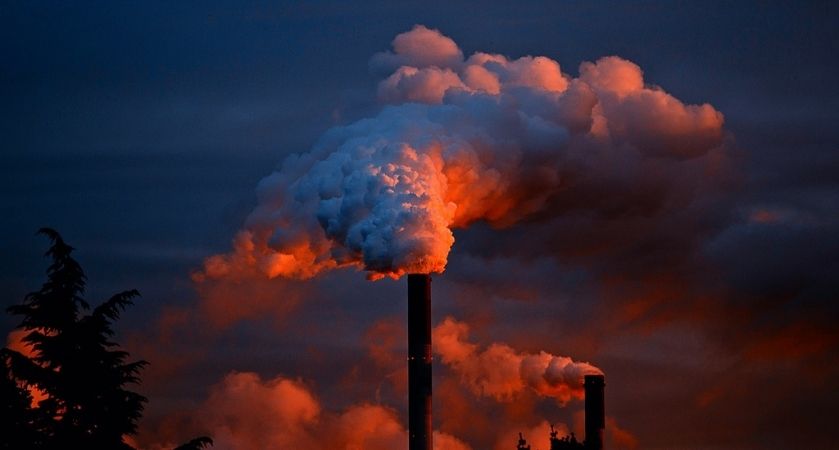Climate Policies are Not Enough to Save the Climate
The global energy supply has always been, and continues to be, largely based on fossil fuels.
Climate change is in rise. Despite the recent development of renewable energies, 80 percent of the world’s energy supply still comes from coal, oil and natural gas, the combustion of which produces around 75 percent of global greenhouse gas emissions.
The European Green Deal represents the most advanced experiment in this field worldwide to date. This initiative is aimed at making Europe the first climate-neutral continent by 2050.
Energy represents a cornerstone of our economies, just as it represents an essential element in our daily life.
Energy resources are the basis of the development of the international orders of modern history: coal was the background of the British Empire in the nineteenth century, oil was at the center of the next “American century”, and today many predict that China will become the global renewable energy superpower of the twenty-first century. The strategic importance of energy is such as to define global economic and geopolitical dynamics.
Over the past twenty years, the global role of energy has become even more central following the growing international awareness of two major issues: climate change and access to energy in developing countries.
The Role of Fossils
The global energy supply has always been, and continues to be, largely based on fossil fuels. Despite the recent development of renewable energies, 80 per cent of the world’s energy supply still derives from coal, oil and natural gas, the combustion of which produces about 75 per cent of global greenhouse gas emissions, making the energy the main cause of climate change.
A structural response to this grave threat to humanity can therefore only come from the energy sector, particularly through a global clean energy revolution.
As energy is a fundamental prerogative of modern life, guaranteeing access to it assumes crucial socio-economic importance. Today, 860 million people around the world – and in Africa in particular – still lack access to electricity, while 2.6 billion people still lack access to modern and safe systems for cooking.
Problem, the latter, dramatic both from a socio-sanitary point of view (think of respiratory diseases due to the fumes inhaled in the house by stoves or hearths), and from an environmental point of view (think of the deforestation resulting from the use of wood for these purposes ).
Allowing these people to take advantage of modern and economically sustainable services is one of the major socio-economic issues of our time, a necessary step to eradicate poverty and reduce inequalities.

A Challenge Not Only in Europe
The enormity of these challenges presents us with the need to have a clear understanding of the fundamentals of global energy to initiate an informed public debate on the vital issues of the climate crisis and its possible responses.
This need is even more pressing today given the centrality of the energy transition issue on the European and international political agenda.
At European level, President Ursula von der Leyen has made the Green Deal the central pillar of her Commission, and one of the fundamental ingredients for the post-Covid-19 recovery. The European Green Deal represents the most advanced experiment in this field worldwide to date.
With this initiative, aimed at making Europe the first climate-neutral continent by 2050, Europe is setting a new trajectory capable of accompanying the energy transition with the necessary economic and industrial transformation that it entails, guaranteeing the social inclusion of the whole process.
Europe has in fact acknowledged that climate and energy policies are no longer sufficient on their own to address the far-reaching climate challenge. Only a much broader policy – which also takes into account economic, fiscal, industrial, and issues related to work, innovation and social policy – can truly be able to tackle this challenge in a balanced way.
At the international level, it should be highlighted how a real domino effect has been triggered on the climate ambition front. In fact, similar promises from China, Japan and South Korea have been added to the European Union’s plans for achieving climate neutrality by 2050.
All these countries have, in fact, recently planned climate (or carbon) neutrality targets for 2050 or shortly thereafter. Once the United States joins this list, likely as early as January, it would include about two-thirds of the global economy and more than half of the world’s greenhouse gas emissions.
An unprecedented front, this of the ‘net-zero’, which not only opens new hopes on the front of the fight against climate change, but also offers renewed opportunities for cooperation between these same countries on the technological and geopolitical front.
The timing of this development is particularly important, as a major UN climate conference (the so-called COP-26) will be held in Glasgow in 2021 in which all countries will have to present their new emission reduction plans by 2030. A fundamental appointment in the governance of the Paris Agreement.
The Future of Climate Change
The next few years will see the world becoming increasingly committed to the energy transformation, both in terms of global decarbonisation and the development of access to energy in developing countries.
These mega-trends will affect every aspect of world societies and economies, and will affect the same way of living and relating to the environment of the world population.
A historic challenge, which could really make the world a better and fairer place for everyone. We must all be prepared for this challenge, equipping ourselves with the tools of knowledge in understanding these phenomena, and with them in understanding the world to come.

